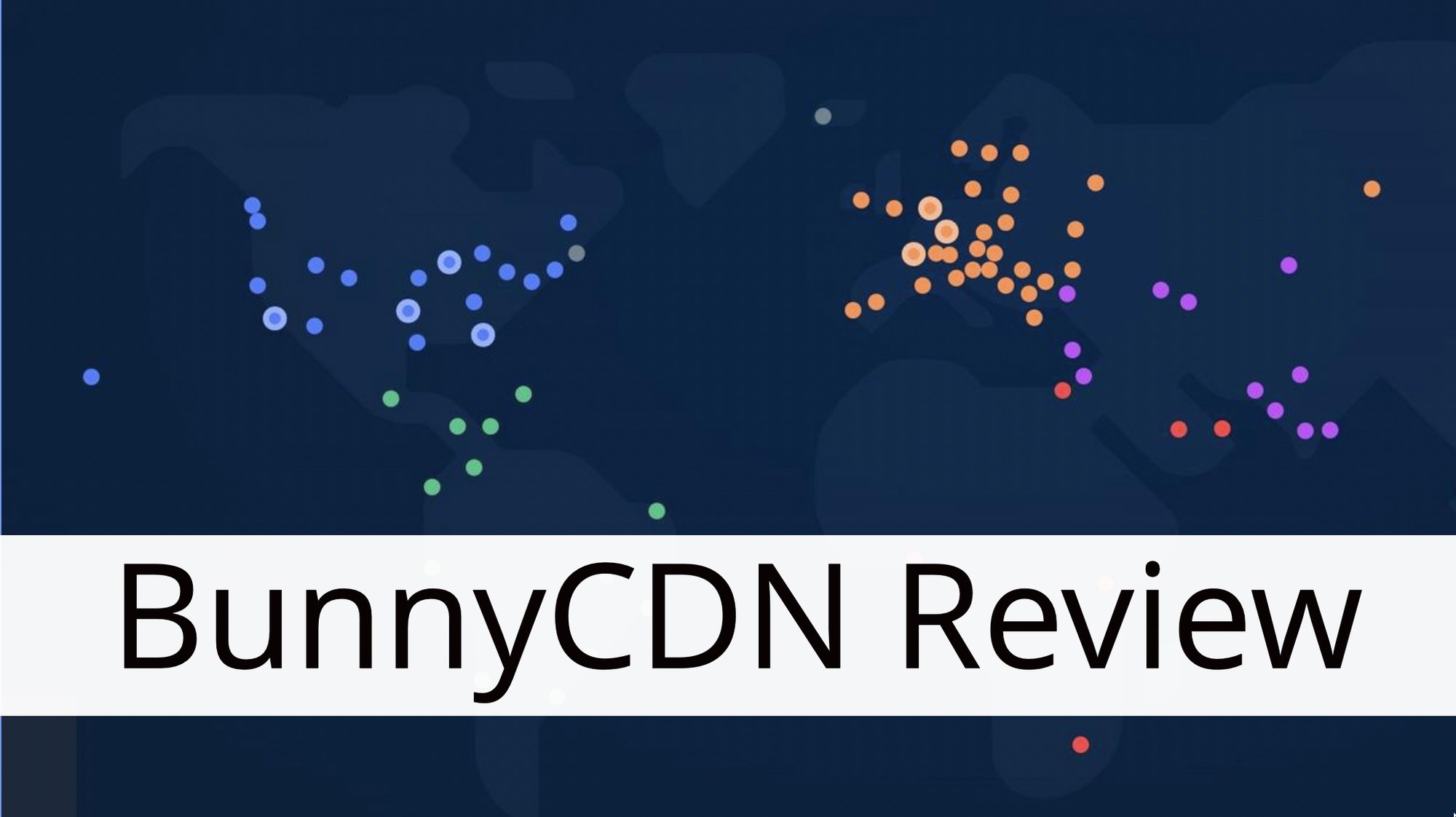In today’s digital landscape, having a strong online presence is crucial for small businesses. A well-designed website not only provides a platform for showcasing products or services but also allows businesses to reach a broader audience and generate sales. However, with this increased reliance on the internet comes the need for robust website security measures.
Website security refers to the protection of a website from malicious activities, ranging from unauthorized access to data breaches and malware attacks. Implementing effective security measures is essential to safeguard sensitive information and maintain the trust of customers.
In this article, we will explore the fundamental aspects of website security and provide small business owners with practical tips to secure their websites effectively. Whether you’re new to website security or looking to enhance your existing security measures, you’ll find valuable insights and actionable advice to protect your online presence. So, let’s dive in and learn about the importance of website security and some of the common threats that small businesses face in today’s digital world.
Understanding Website Security
Introduction
In today’s digital age, having a secure website is not just an option, but a necessity for any business, big or small. Website security plays a critical role in protecting sensitive information and maintaining the trust of your customers. Small businesses, in particular, need to prioritize website security to safeguard their assets and reputation. This article will delve into the importance of website security for small businesses and shed light on common threats that they should be aware of.
Importance of Website Security for Small Businesses
Protecting Customer Data
Small businesses often collect and store customer information such as names, contact details, and payment information. This valuable data, if compromised, can lead to severe consequences for both the business and its customers. Implementing robust website security measures ensures that this sensitive information remains confidential and protected from unauthorized access.
Maintaining Business Reputation
A security breach can have devastating effects on a small business’s reputation. Customers are increasingly concerned about the safety of their personal information and will hesitate to engage with a business that has a history of security issues. By prioritizing website security, small businesses can demonstrate their commitment to safeguarding customer data and establish trust with their audience.
Preventing Downtime and Loss of Revenue
Security threats to websites can lead to downtime, where the website becomes inaccessible to users. This can result in loss of revenue, missed opportunities, and a negative impact on the customer experience. Implementing security measures such as firewalls, malware scanning, and regular backups can help prevent such issues and ensure the smooth functioning of the website.
Complying with Legal and Regulatory Requirements
Small businesses are often subject to various legal and regulatory requirements regarding data protection and privacy. Neglecting website security can result in non-compliance with these regulations, leading to fines and other penalties. By prioritizing website security, small businesses can ensure that they meet these obligations and avoid costly legal consequences.
Common Website Security Threats
Malware Infections
Malware refers to malicious software that can infect a website and compromise its security. This can include viruses, ransomware, and spyware. Malware infections can lead to unauthorized access, data theft, and damage to the website’s functionality. Regular malware scans, strong passwords, and software updates are essential to protect against such threats.
Phishing Attacks
Phishing attacks involve tricking users into revealing sensitive information such as passwords or credit card details through deceptive emails or websites. Small businesses may be targeted by phishing campaigns aimed at stealing customer information or gaining access to their systems. Educating employees about phishing techniques and implementing email filters can help mitigate this risk.
Brute Force Attacks
Brute force attacks involve systematically trying different combinations of usernames and passwords until the correct credentials are found. This can give attackers unauthorized access to a website’s admin panel or user accounts. Implementing measures such as strong password policies, login throttling, and two-factor authentication can help protect against brute force attacks.
Cross-Site Scripting (XSS)
Cross-Site Scripting involves injecting malicious code into a website’s pages, which can then be executed on the user’s browser. This can allow attackers to steal sensitive information or manipulate the website’s functionality. Regular security audits and input validation can help identify and prevent XSS vulnerabilities.
DDoS Attacks
Distributed Denial of Service (DDoS) attacks involve overwhelming a website’s servers with a flood of requests, rendering the website inaccessible to users. These attacks are often carried out by botnets, which are networks of compromised computers. Implementing DDoS protection services and maintaining server capacity can help mitigate the impact of such attacks.
Conclusion
Understanding website security is crucial for small businesses to protect their assets, maintain their reputation, and comply with legal requirements. By implementing robust security measures and staying vigilant against common threats, small businesses can ensure the safety and integrity of their website, instilling trust in their customers and optimizing their online presence.
Building a Secure Website
In today’s digital age, building a secure website is absolutely vital to protect sensitive information and maintain trust with your visitors. Whether you have an e-commerce site or simply a blog, implementing proper security measures is crucial to safeguard your website from potential threats. In this article, we will explore the essential steps to build a secure website, including choosing a reliable hosting provider, installing SSL certificates, and keeping website platforms and software updated.
Choosing a Reliable Hosting Provider
When it comes to building a secure website, selecting a dependable hosting provider is the first step. Your hosting provider is responsible for providing server space and ensuring that your website is accessible to visitors. Here are some key factors to consider when choosing a hosting provider:
- Security features: Look for a hosting provider that offers robust security features, such as firewall protection, malware scanning, and regular data backups. These features can significantly enhance the security of your website.
- SSL support: Ensure that the hosting provider supports SSL (Secure Sockets Layer) encryption. SSL encrypts the data transferred between your website and your visitors’ browsers, making it extremely difficult for hackers to intercept and read sensitive information.
- Uptime guarantee: Opt for a hosting provider that offers a high uptime guarantee. A reliable hosting provider will ensure that your website remains accessible to visitors at all times, minimizing the risk of downtime and potential security breaches.
Installing SSL Certificates
Once you have chosen a hosting provider that supports SSL encryption, the next step is to install an SSL certificate on your website. An SSL certificate verifies the authenticity of your website and enables secure communication between your website and your visitors’ browsers. Here’s how to install an SSL certificate:
- Purchase an SSL certificate: You can obtain an SSL certificate from a reputable Certificate Authority (CA) or through your hosting provider. Consider the type of SSL certificate that suits your website’s needs, such as a single domain, wildcard, or extended validation certificate.
- Generate a Certificate Signing Request (CSR): This involves generating a CSR file that contains your website’s details. The CSR file is then submitted to the CA, who will use it to issue your SSL certificate.
- Install the SSL certificate: Once you receive the SSL certificate from the CA, follow the instructions provided by your hosting provider to install it on your website. This typically involves uploading the certificate files, configuring your server settings, and updating your website’s URLs to use HTTPS instead of HTTP.
Keeping Website Platforms and Software Updated
Updating your website platforms, content management systems (CMS), and software regularly is crucial for maintaining a secure website. Developers constantly release updates that address security vulnerabilities and improve overall performance. Here’s why keeping everything up to date is essential:
- Security patches: Updates often include security patches that address known vulnerabilities in website platforms, CMS, and software. Failing to update your website can leave it susceptible to hacking attempts.
- Compatibility and performance: Updates also improve compatibility with new technologies and enhance the overall performance of your website. By staying up to date, you ensure that your website functions smoothly and provides a seamless user experience.
Regularly updating your website platforms, CMS, and software may seem time-consuming, but it is well worth the effort to keep your website secure.
In conclusion, building a secure website involves choosing a reliable hosting provider, installing SSL certificates, and regularly updating website platforms and software. By following these essential steps, you can protect sensitive information, maintain the trust of your visitors, and ensure the long-term success of your website.
Securing Website Transactions
In today’s digital age, securing website transactions is crucial for any business that engages in online commerce. With the constant threat of cyberattacks and data breaches, it’s essential to protect your customers’ sensitive information and provide them with a safe and secure online experience. This article will discuss the steps to secure website transactions, focusing on two key aspects: deploying secure payment gateways and implementing secure user authentication processes.
Deploying Secure Payment Gateways
When it comes to online transactions, ensuring the security of payment processing is paramount. Here are some key steps to consider when deploying secure payment gateways:
- Choose a reputable payment gateway provider: Select a payment gateway provider with a proven track record of security and reliability. Look for features such as encryption, fraud detection, and PCI compliance.
- Implement SSL/TLS encryption: Secure Sockets Layer (SSL) or Transport Layer Security (TLS) encryption is essential for protecting sensitive data during transmission. This encryption ensures that customer information, such as credit card details, is securely transmitted between the customer’s browser and the payment gateway.
- Stay updated with security patches: Regularly update your payment gateway software to stay protected against emerging threats. Keep an eye out for security patches and updates released by your payment gateway provider, and promptly apply them to your system.
- Monitor for suspicious activity: Implement monitoring systems to detect any suspicious transactions or activity. This includes monitoring for unusual spikes in transactions, multiple failed payment attempts, or anomalies in customer behavior.
- Adhere to industry regulations: Ensure that your payment gateway is compliant with industry standards and regulations, such as the Payment Card Industry Data Security Standard (PCI DSS). Compliance with these standards helps protect both your business and your customers from potential security risks.
Implementing Secure User Authentication
Securing user authentication is crucial for preventing unauthorized access to customer accounts and ensuring that only authorized individuals can engage in transactions on your website. Here are some steps to implement secure user authentication processes:
- Use strong password policies: Encourage users to create strong, unique passwords and enforce password complexity requirements. Consider implementing multi-factor authentication (MFA) as an additional layer of security, requiring users to provide a second form of authentication, such as a code sent to their mobile device.
- Educate users on security best practices: Provide clear instructions to users on how to create strong passwords, avoid phishing scams, and protect their login credentials. Regularly remind users to update their passwords and be cautious when sharing personal information online.
- Implement account lockouts and session timeouts: Enforce account lockouts after multiple failed login attempts to protect against brute-force attacks. Set session timeouts to automatically log users out after a period of inactivity, reducing the risk of unauthorized access.
- Utilize secure authentication protocols: Implement secure authentication protocols such as OAuth or OpenID Connect, which provide a standardized and secure way for users to authenticate with your website using their existing credentials.
Remember, securing website transactions is an ongoing process that requires regular monitoring and updates. By following these steps and staying vigilant, you can maintain the trust of your customers and protect their valuable data from potential threats.
Implementing Security Measures
In today’s digital world, website security is of paramount importance. With hackers becoming more sophisticated and cyberattacks on the rise, it’s crucial for website owners to take proactive steps to protect their platforms and their users’ sensitive information. This article will discuss some key security measures that can be implemented to safeguard websites from potential threats. From utilizing security plugins to employing firewalls and backup and recovery solutions, we’ll explore different strategies that can provide robust protection. Let’s dive in!
Utilizing Security Plugins
One effective way to enhance website security is by utilizing security plugins. These plugins are designed to add an extra layer of protection to your website, mitigating risks and strengthening your defense against potential threats. They often offer a range of features and functionalities, such as:
- Malware scanning: Security plugins can scan your website for malicious files or code, identifying potential vulnerabilities and helping you address them promptly.
- Firewall protection: Some plugins come with built-in firewall protection, which monitors incoming and outgoing traffic, filtering out malicious requests and ensuring that only legitimate traffic reaches your website.
- Login security: Security plugins can enforce strong password policies, limit login attempts, and implement two-factor authentication, making it harder for hackers to gain unauthorized access to your website.
- Real-time threat detection: Many security plugins use real-time threat intelligence to detect and block known malicious IPs, bots, or suspicious activities, providing proactive protection against attacks.
Popular security plugins like Wordfence and Sucuri offer comprehensive security suites that can help safeguard your website from various threats. By installing and configuring these plugins, you can significantly enhance your website’s security posture.
Employing Firewalls
Firewalls are another essential component of a robust website security strategy. Acting as a gatekeeper, a firewall filters network traffic, allowing only authorized communication to pass through and blocking malicious traffic. Firewalls can be implemented both at the network level (hardware firewalls) and the application level (software firewalls).
- Hardware Firewalls: These firewalls are typically installed at the network perimeter, protecting all devices connected to the network. They analyze incoming and outgoing traffic, applying predefined security rules to determine which packets should be allowed or blocked.
- Software Firewalls: Software firewalls are installed directly on servers or individual devices, providing protection at the application level. They monitor traffic specific to the host device and can be customized to cater to specific security requirements.
Implementing firewalls, either in hardware or software form, helps create a protective barrier between your website and potential threats. They add an extra layer of defense and can help prevent unauthorized access and intrusions.
Backup and Recovery Solutions
Even with robust security measures in place, it’s important to be prepared for the worst-case scenario. Cyberattacks or other unforeseen events can still occur, potentially resulting in data loss or website downtime. That’s where backup and recovery solutions come into play. These solutions allow you to create regular backups of your website and its data, enabling you to quickly restore your website to a previous state should a security incident or data loss event occur.
- Automatic backups: Backup and recovery solutions often offer automated backup scheduling, allowing you to schedule regular backups without manual intervention. This ensures that you always have an up-to-date copy of your website to restore from.
- Offsite storage: It’s important to store backups in a secure and separate location from your website’s server. Many backup solutions offer the option to store backups in offsite locations, such as cloud storage services, providing an additional layer of protection.
- Restore options: Look for backup solutions that provide easy and intuitive restore options. Ideally, you should be able to restore your website quickly and efficiently with just a few clicks, minimizing downtime in the event of an incident.
Tools like UpdraftPlus and VaultPress are popular backup and recovery solutions that can help protect your website’s data and ensure business continuity in the face of adversity.
Implementing these security measures – utilizing security plugins, employing firewalls, and having backup and recovery solutions in place – can significantly strengthen your website’s security posture. By proactively safeguarding your platform, you not only protect your own interests but also provide a safe online experience for your users. Stay tuned for more insights on website security in future articles! 🔒
Education and Training for Small Business Owners
Owning a small business is an exciting venture, but it also comes with its fair share of challenges. From managing finances to marketing strategies, small business owners wear many hats. However, one area that should never be overlooked is website security. In today’s digital age, where cyber threats are rampant, it is essential for small business owners to prioritize ongoing education and training in website security.
Why is Education and Training in Website Security Important?
Website security is not just a matter of protecting customer data; it is also crucial for safeguarding the reputation and longevity of your business. Here are a few reasons why education and training in website security should be a priority for small business owners:
- Prevention of cyber attacks: By staying informed about the latest security threats and techniques, small business owners can effectively prevent cyber attacks that could potentially cripple their business operations.
- Protection of customer data: Customer trust is paramount in any business. Proper education and training in website security help small business owners to protect their customers’ sensitive information, such as credit card details or personal data, from falling into the wrong hands.
- Mitigation of financial losses: The aftermath of a cyber attack can be financially devastating for small businesses. By investing in education and training, owners can minimize the risk of financial losses resulting from data breaches or ransomware attacks.
- Compliance with regulations: Many industries have stringent data protection regulations in place, such as the General Data Protection Regulation (GDPR) in the European Union. Staying educated in website security helps small business owners ensure compliance with these regulations and avoid hefty fines.
Where to Get Education and Training in Website Security?
Small business owners have several options when it comes to acquiring education and training in website security. Here are a few avenues to consider:
- Online Courses and Webinars: Many reputable organizations offer online courses and webinars specifically tailored for small business owners. These programs cover topics such as website vulnerability assessments, secure coding practices, and incident response planning.
- Industry Conferences and Workshops: Attending industry conferences and workshops can provide small business owners with valuable insights into the latest trends and best practices in website security. Furthermore, these events offer networking opportunities to connect with experts and other like-minded individuals.
- Cybersecurity Consultants and Experts: Hiring cybersecurity consultants or experts for personalized training can be a worthwhile investment. These professionals can assess your business’s specific security needs and provide tailored training to meet those requirements.
Stay Ahead of the Curve
Ongoing education and training in website security should be seen as an investment rather than an expense. By continuously staying updated on the latest security threats and implementing the necessary measures, small business owners can stay ahead of the curve and protect their businesses and customers from potential harm.
Remember, education and training in website security is a proactive approach that can save you from the costly consequences of a security breach. Stay informed, stay secure!
Conclusion
In conclusion, website security is a critical aspect that small business owners cannot afford to overlook. With the ever-increasing number of cyber threats and attacks, it is essential to prioritize the security of your website to protect your business and your customers.
By understanding the importance of website security and implementing the necessary measures, such as choosing a reliable hosting provider, installing SSL certificates, and keeping your website platforms and software updated, you can significantly reduce the risk of security breaches and keep your website safe.
Additionally, securing website transactions through the deployment of secure payment gateways and implementing secure user authentication protocols is crucial to safeguard sensitive data and prevent unauthorized access.
To further enhance your website security, it is recommended to utilize security plugins, employ firewalls, and implement backup and recovery solutions. These measures can provide an additional layer of protection and ensure that your website remains secure even in the face of potential attacks.
Lastly, as a small business owner, it is crucial to invest in education and training to stay updated on the latest security practices and emerging threats. By staying informed, you can take proactive steps to protect your website and maintain the trust of your customers.
Remember, when it comes to website security, prevention is always better than cure. Take the necessary steps to secure your website today, and rest assured that your business and your customers are in safe hands.
Ready to take your website security to the next level? Consider Managed-WP™, a premium managed WordPress cloud hosting platform that simplifies infrastructure, offers freedom in digital experiences, and provides expert 24/7/365 problem-solving. With Managed-WP™, you can focus on growing your business while leaving the security of your website in capable hands. Explore Managed-WP™ today at managed-wp.com. 🚀🔒
Frequently Asked Questions
- Why is website security important for small business owners?
Website security is important for small business owners to protect their sensitive data, customer information, prevent hacking attempts, maintain customer trust, and ensure uninterrupted business operations.
- What are some essential website security tips for small business owners?
Some essential website security tips for small business owners include: keeping software and plugins up to date, using strong and unique passwords, implementing SSL encryption, regularly backing up website data, installing security plugins, and educating employees about security best practices.
- How can I protect my website from hacking attempts?
To protect your website from hacking attempts, you should consider implementing measures such as using a reputable web hosting provider, regularly updating website software, using strong passwords, enabling two-factor authentication, installing a firewall, and conducting regular security audits.
- What should I do if my website gets hacked?
If your website gets hacked, the immediate steps you should take include: disconnecting from the internet, restoring a recent backup, scanning your computer for malware, updating all passwords, and seeking professional help if needed.
- Are there any online resources or tools available for small business owners to enhance website security?
Yes, there are several online resources and tools available for small business owners to enhance website security. Some popular resources include Google’s Webmaster Central, Sucuri’s website security blog, and tools like Wordfence and Sucuri Security for WordPress websites.



















